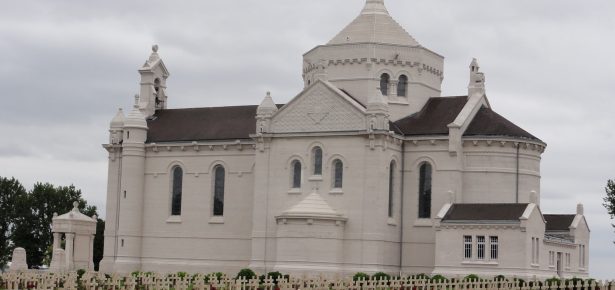
Living Lockdown as an academic historian has meant learning a great deal, and fast. There was the move to online teaching and student support, meetings to plan the first academic year with social isolation, and helping to keep research – and the training of historians – alive and meaningful. Like so many others it seems to be a pressing and busy time, even away from the frontline. Alongside the daily tasks I have been prompted to comment on our situation from an historical perspective, in my case that of Europe, the Black Death and its aftermath. There is real thirst for historical insight into a situation which seems to be without parallel. And historians have responded willingly.
But a larger question has also occupied me: how will living though Covid-19 affect historical practice? What sort of historians will we become? How do collective traumas affect historians?
As ever, history is a useful guide. A century ago a generation of historians navigated the transition from trenches to lecture hall. Two of the most influential on historical practice since World War I have been Marc Bloch (1886-1944) and Lucien Febvre (1878-1956). Both men were moved by their experiences to think of a new history, initially with some hesitation. Something had to be done after the trenches, but what? What was an historian to do in a world in ruins? In his 1919 inaugural lecture at the University of Strasbourg, shortly after being demobilised, Febvre put it to his audience:
Do I have the right, historian as I was, to take up my task as an historian again today? To make history. To teach history…. in the vast building site of the world which is being re-born…you cannot place the care for history’s place in an old routine. [1]
So Bloch and Febvre became prophets of a new history, and spent the 1920s criss-crossing Europe with the aim of spreading their message. For they believed that there was no going back to normal, history had to reflect those who paid the price, that is history had to inquire beyond dynasties, states and diplomacy, to the lives of people who died in 1914-18, and ever bore the cost of war. A history of everyone, and everything – the scarred landscape too. This was history with purpose, histoire problème, and another of its aims was to inquire into power and authority, through the rituals and myths which sustained them. These were young historians, returning to posts in a new university, and their perspective was deeply marked by the war.
It was possible for an emergent historian to be marked by the War even away from the trenches, as was Eileen Power (1889-1940). This budding Girton medievalist became a committed internationalist, who used history to promote peace and social justice after a war that surely had to be the end to all wars. Like Bloch and Febvre she sought in history – particularly through comparison – a way ‘to show mankind its common heritage in the past and its common hopes for the future’. [2]
Social inclusion and international cooperation, these were the messages that historians, survivors of World War I and the ’flu pandemic which followed, brought to their history. Our crisis is likely to be shorter, but its lineaments already suggest that Covid 19’s effects are deeply shaped by pre-existing conditions of social inequality and narrow-minded governance. And historians – from their living rooms and makeshift offices in Lockdown, in their podcasts and webinars – are already reflecting about the shape of the world after Covid-19, and of history’s role within it.
—————————————————-
[1] Lucien Febvre, ‘L’histoire dans le monde en ruine’, pp. 1-16, at p.2; on this approach see Olivier Dumoulin, Le rôle social de l’historien. De la chaîre au prétoire, Paris: Albin Michel, 2003, pp. 251-68.
[2] Power, A Bibliography for School Teachers of History, p. 4.
Latest Comments
Have your say!